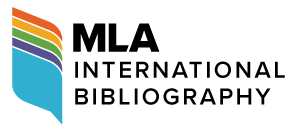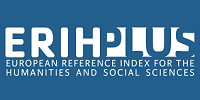Mariama Bâ and Djaïli Amadou Amal: So long a letter of (im)patient women
DOI:
https://doi.org/10.7203/HYBRIDA.2.20603Keywords:
Djaïli Amadou Amal, Mariama Bâ, inter-actuality, Munyal in the Sahel, Islam and polygamy Abstract
Abstract
The paper brings into a fruitful dialogue the classic epistolary novel So Long a Letter (1980) by Mariama Bâ and Les Impatientes (2020) by Djaïli Amadou Amal. It is structured around the following four points highlighting the synergy between the two novels despite the four decades time span separating them: 1. Cultural philosophical lexicon (pulaaku words addressing the wounds of polygamy) derived from Les Impatientes 2. Literary itinerary. 3. Narrative perspective (voices and routes of female narrators), and 4. Novels’s telling style. The essay lays an emphasis on this novel because there is a countless number of critical works on So Long a Letter whereas only a few interviews in media have so far paid attention to Djaïli Amadou’s novel. Therefore, this contribution uses a philosophy/theory ‘munyal’ suggested by the text itself to analyse the unchanging fate of women in two Muslim contexts, which boils down to building a corpus of literary criticism on creative works by one of the currently most significant female literary voices in Cameroon.
 Downloads
Downloads
 References
References
Bâ, M. (1980). Une si longue lettre. Les Nouvelles éditions africaines.
Ben Ali, S. (2017). La Hantise du mur de nos tragédies intérieures. Dans N. Djailani (dir.), Hadith pour une république à naître (pp. 7-8), Komedit.
Béti, M. (1974). Perpétue et l’habitude du malheur. Buchet/Chastel.
Césaire, A. (1983). Cahier d’un retour au pays natal. Présence Africaine.
Colas, E. (s.d.). Entrevue avec Emmanuelle Colas / Interviewé par Amandine Glévarec. Archives éditoriales. https://archiveseditoriales.net/entrevues/entrevue-avec-emmanuelle-colas/
Diop, B. B. (2014). Murambi, le livre des Ossements. Zulma.
Djaïli, A. A. (2020). Les impatientes. Emmanuelle Collas.
Djaïli, A. A. (2010). Waalande : L’Art de partager un Mari. Ifrikiya.
NAJA TV. (29 nov 2020). Djaïli Amadou Amal : « La littérature m’a sauvé la vie » [Archive de vidéo].YouTube. https://www.youtube.com/watch?v=4WP7IBQtVRE
Alliance internationale des éditeurs indépendants (s.d.). Walaandé, l’art de partager un mari. Alliance internationale des éditeurs indépendants. Consulté le 08.01.2021 https://www.alliance-editeurs.org/walaande-l-art-de-partager-un-mari,906?lang=fr
Editions Emmanuelle Collas (s.d.). Page principale. Facebook. Consulté le 08/01/2021 https://www.facebook.com/EditionsEmmanuelleCollas/?ref=page_internal
Editions Proximité (s.d.). Page principale. Facebook. Consulté le 08.01.2021 https://www.facebook.com/Editionsproximite/
Fekre, O. (2010). Je dois m’acheter un mari. Dans S. Salim & al (dir.), Petites Fictions Comoriennes (pp. 77-82). Komedit.
Institut d’Études Françaises (08 mars 2021). Journée Internationale des Droits des Femmes: Impatientes et insoumises avec Djaïli Amadou Amal, Prix Goncourt des Lycéens 2020. https://www.institutfrancais.de/fr/saarbruecken/event/journee-internationale-des-droits-des-femmes-—impatientes-et-insoumises-avec#infobox
France 24. (11 sept 2020). Djaïli Amadou Amal : peule, musulmane et féministe [Archive de vidéo]. YouTube. https://www.youtube.com/watch?v=ry6RRla9EuY
Glissant, E. (1996). Introduction à une poétique du divers. Gallimard.
Tchak, S. (s.d.). Chronique : Trois femmes : le même destin. Littafcar. Consulté le 08.01.2021 http://www.littafcar.org/contenus/188/chronique--trois-femmes---le-meme-destin
TV5Monde Info. (15 avril 2019). Et si vous me disiez toute la vérité : Entretien avec Djaïli Amadou Amal, mené par Denise Epoté [Archive de vidéo]. YouTube. https://youtu.be/O9N7YfAS5Jo
Unesco Cameroon (s.d.). Page principale. Facebook. Consulté le 05.03.2021 https://www.facebook.com/unicefcameroon/
Published
How to Cite
-
Abstract1189
-
HTML (Français )46
-
PDF (Français )2973
Issue
Section
License
All the documents in the OJS platform are open access and property of their respective authors.
Authors publishing in the journal agree to the following terms:
- Authors keep the rights and guarantee HYBRIDA the right to be the first publication of the document, licensed under a Creative Commons license Attribution-NonCommercial-ShareAlike 4.0 International (CC BY-NC-SA 4.0) that allows others to share the work with an acknowledgement of authorship and publication in the journal.
- Authors are allowed and encouraged to spread their work (once published) through electronic means using personal or institutional websites (institutional open archives, personal websites or professional and academic networks profiles) once the text has been published.

















